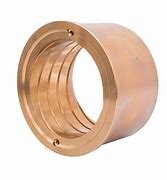Copper Pipes vs. Jack Frost: Who Wins the Winter Showdown?
(How Easily Will Copper Pipes Freeze)
Winter’s icy grip turns even the coziest homes into battlegrounds. And while you’re sipping cocoa by the fire, your copper pipes might be plotting a mutiny. Let’s dive into the frosty drama of whether your trusty plumbing can outsmart subzero temperatures—or if you’ll end up with a frozen mess.
Copper pipes are like that reliable friend who shows up with a toolbox: durable, flexible, and great at their job. But when temperatures plummet, even copper has its limits. Unlike plastic pipes, which might flex a bit under pressure, copper’s toughness can backfire. When water inside freezes, it expands—hard. Since copper isn’t a fan of stretching, the pressure builds… until *pop*. A burst pipe isn’t just a leak; it’s an indoor waterfall nobody ordered.
But wait—aren’t copper pipes tough? Sure, but frost doesn’t care. The real question is: How cold is too cold? Generally, pipes start sweating bullets once the thermostat dips below 20°F (-6°C). But it’s not just about the temperature. Wind chill, lack of insulation, and exposed pipes in unheated spaces (looking at you, attic and crawlspace dwellers) turn this into a survival game. A pipe tucked inside a toasty wall might laugh at 15°F, while its cousin in the garage becomes an ice sculpture overnight.
Here’s the kicker: Copper’s thermal conductivity is a double-edged sword. It’s great for quickly moving hot water to your shower, but it’s equally efficient at sucking heat *out* of the water when the air turns frigid. Imagine your pipes as a sports car: fast and sleek, but one icy patch and things go sideways.
So, how do you know if Jack Frost is messing with your pipes? Listen for the silence. If you turn on a faucet and only get a trickle—or worse, a creepy hollow gurgle—it’s a red flag. Frost on the pipe’s surface? That’s the equivalent of a white flag. Act fast, because once water freezes solid, you’re racing against the clock before expansion does its dirty work.
Prevention is your best weapon. Wrap pipes in foam insulation sleeves—like giving them a cozy winter jacket. For extra-cold zones, heat tape or cables can be lifesavers, acting like electric blankets for your plumbing. Let faucets drip during deep freezes; moving water is harder to freeze than stagnant puddles. And seal those sneaky drafts! A gap under the basement door or a cracked window nearby can turn your pipes into ice magnets.
If disaster strikes, don’t panic. Thaw pipes gently with a hairdryer or heating pad—no blowtorches, please. Open faucets to relieve pressure as ice melts. And if you’re staring at a burst pipe? Shut off the main water valve immediately. Your weekend plans now include calling a plumber and praying your insurance covers “indoor ice skating rink” incidents.
(How Easily Will Copper Pipes Freeze)
In the end, copper pipes are resilient—but they’re not invincible. With a little prep, you can tilt the odds in their favor. Think of it as helping your plumbing suit up for a winter showdown. After all, nobody wants to spend January mopping up a frozen fiasco when they could be binge-watching Netflix. Stay warm, stay smart, and let those pipes live to fight another frosty day.
Inquiry us
if you want to want to know more, please feel free to contact us. (nanotrun@yahoo.com)



